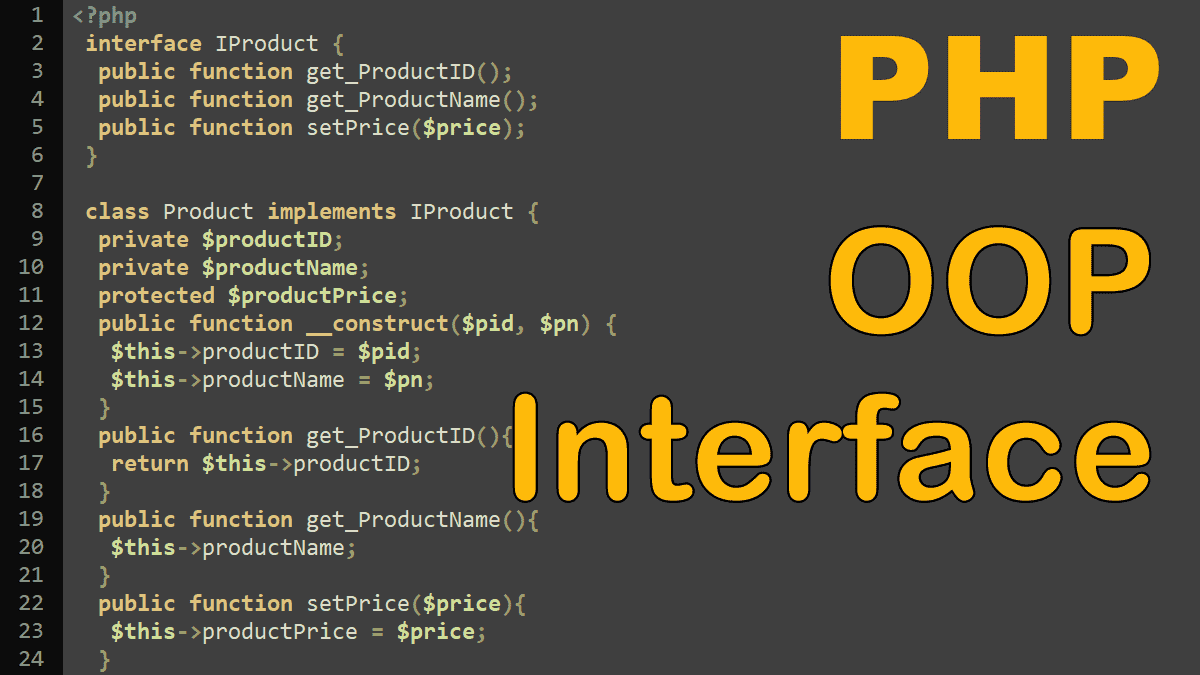Implementing interfaces is a way of creating a set of methods that people must implement if they want to be viewed as a member of the class of objects with the same interface. You declare an interface with the interface keyword:
<?php
// prefixing the interface name with a capital I is
// strictly a naming convention that I use.
interface IProduct {
public function get_ProductID();
public function get_ProductName();
public function setPrice($price);
}
interface IBuyer {
public function get_BuyerID();
public function get_BuyerName();
}
Classes indicate that they want to implement an interface by using the implements keyword:
<?php
class Product implements IProduct {
private $productID;
private $productName;
protected $productPrice;
public function __construct($pid, $pn) {
$this->productID = $pid;
$this->productName = $pn;
}
public function get_ProductID(){
return $this->productID;
}
public function get_ProductName(){
return $this->productName;
}
public function setPrice($price){
$this->productPrice = $price;
}
}
1. A class can implement multiple interfaces:
<?php
class Product implements IProduct, IBuyer {
// implement all methods declared in
// IProduct and IBuyer interfaces ...
}
2. An abstract class can implement interfaces:
<?php
abstract class Product implements IProduct, IBuyer {
// ...
}
3. A class can extend its parent class and implement interfaces at the same time:
<?php
class Product extends Pproduct implements IProduct {
// ...
}
4. Abstract, Extends, and Implements all together:
<?php
abstract class Product extends Pproduct implements IProduct {
// your code
}
PHP OOP Tutorials:
